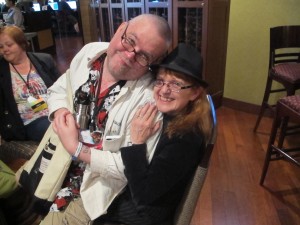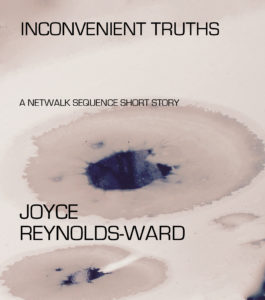One thing that any novelist worth her words soon discovers is that every book has its own process. Even though I have a more-or-less coherent and somewhat consistent process of outlining after fourteen or so books, I’ve discovered that each story warps that methodology in its own unique way. Just in the past year, Beating the Apocalypse effectively defeated me because in trying to take the novella/borderline novel Seeking Shelter at the End of the World to a larger story, I discovered a hole deep within the storyline and had to put that book aside because I wasn’t getting anywhere with it and I had other books to write. Choices of Honor (Amazon, Draft2Digital) refused to fit into my usual outlining mode after the first quarter of the book–and I figured out at about 60,000 words that this was because there was another story in the Goddess’s Honor series and I couldn’t finish the series with Choices. Judgment of Honor (Amazon, Draft2Digital) was reasonably well-behaved and fit the process, cooperating nicely with the scene-by-scene outline and not pitching me any big surprises (well, except for some of the things that Katerin learns about her parents).
And then I learned about an opportunity and came up with The Ruby Project. From the beginning, Ruby has had an energy and life of its own. Instead of my usual scene-by-scene outline and detailed worldbuilding and backstory processes, Ruby demanded that I start writing quickly. So I started with a rough outline. This changed to a synopsis once I’d finished three chapters because I was pitching the book.
Thank God that particular email got lost and that the particular person it’s going to understands the writing process. Because yesterday, on the verge of 40,000 words, Ruby jumped off of both the rough outline and the synopsis, big time. Now that particular word count is significant, because it’s usually at that point in the game where a writer realizes The Book Has A Problem. It’s normally because she’s tripped over the Muddle in the Middle and needs to rethink everything.
Fortunately, that’s not my problem with Ruby. Because Ruby is near-future science fiction with significant extrapolation from the rapidly evolving field of agricultural technology, I’m reading research as I write (literally, new things are being released weekly which affects the book!), which has…introduced some interesting plot twists that I didn’t foresee when I wrote the outline and then the synopsis. I had some rough ideas but the details are coming into focus. At this point, not only have conflicts shifted (and a new character I didn’t foresee introduced), but I now have a stronger concept of how the storyline specifics play out. But…while I have a general idea of where the story is going, and where it will end up, I have completely invalidated the current road map as expressed in both outline and synopsis. And with a novel like Ruby, which is literally ripping out of my fingers, not having a road map is somewhat…immobilizing.
I’m not a pantser–that is, I write much better when I know where I’m going, in part because I like to write twisty plot lines that require tracking details. Most of the time, the story innovations that evolve as a part of the writing process do not require significant modification and at about 60,000-80,000 words, I’m somewhat accustomed to throwing away the outline because the story has changed enough by that point that I don’t need it to write those last words. The only other story that has veered this much since I started the detailed outlining was Apocalypse, and it had other issues.
I finished my words yesterday and looked at the synopsis and went “oh, shit,” followed by many other swear words because I realized that the projected synopsis was completely invalidated by words I had written over the past week. Don’t get me wrong. They are good words, there’s some great plot twists, but…because this is a complex and twisted plot with a logical progression, in order to avoid plot holes and the need for an extensive rewrite once I was finished, I not only needed to rewrite the synopsis (which I need to resend), but because I’m pitching the book, I also needed to revise the first chapters to match the new synopsis. Now I’ve been scribbling extensive notes on the synopsis about projected revisions. I suppose the first symptom of “hold on, we’re going someplace else” was when I started crossing out entire synopsis paragraphs because I had already dealt with that issue. I realized that I had some pacing considerations to keep in mind, but the biggest thing was that with all the new stuff (that has emerged over the past week).
I literally had no idea where I was going to go with the words today.
So I went to the gym, fiddled around with stuff, and let things simmer. Then, about 11 pm last night, I sat down with Donald Maass’s Writing the Breakout Novel and a notepad. By the time I was done, I’d scribbled six pages of specific notes about Ruby backstory needs, things that needed to go into earlier chapters, things that needed to be cut, and…most importantly…where I was going to go with today’s words. And it was 2:30 am.
I got up at my usual time. My brain is sluggish, but I had promised myself that not only would I get my words down today advancing the story (fortunately I think I’ve got 2-3 days worth of notes), but that I would go back and polish up those first chapters and then revise the synopsis. Now that I’m done with this blog post, I’m going to post, then the rest of the day is all about the words.
Wish me luck.



